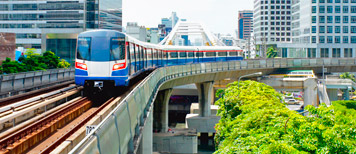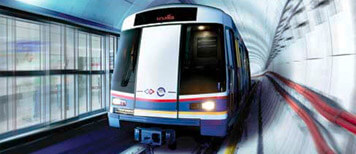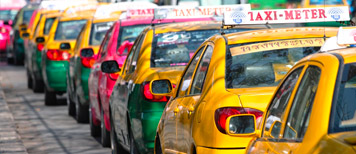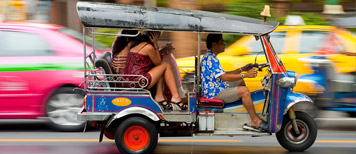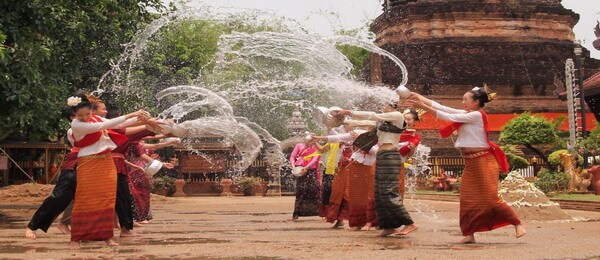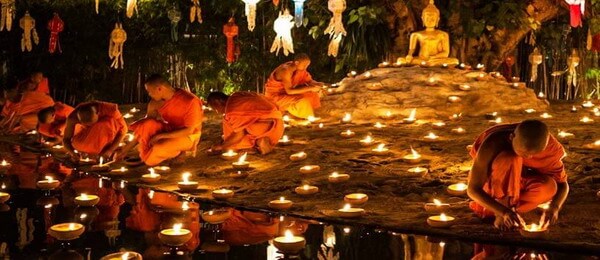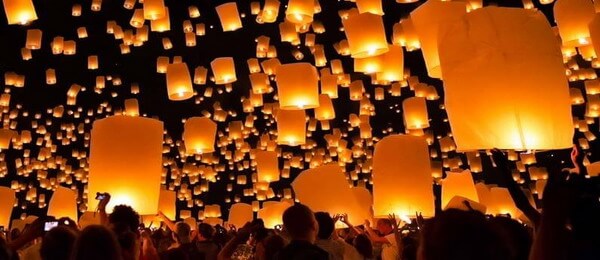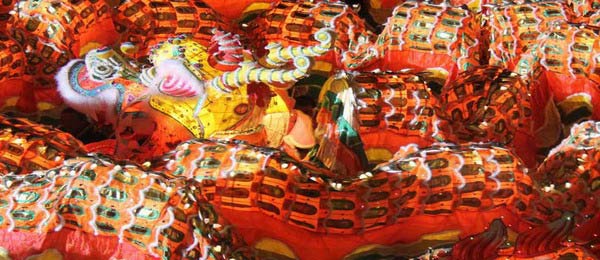Bangkok is the capital and most populous city of Thailand and one of the most vibrant metropolises of Asia. Thais call it Krung Thep Maha Nakhon. The city occupies 1,568.7 square kilometres in the Chao Phraya River delta in Central Thailand. At the last official census, Bangkok had about 7,000,000 inhabitants; nowadays, unofficially, it has a population of over 8 million inhabitants in the urban area and about 14 million people within the surrounding Bangkok Metropolitan Region. Besides the many records that this city owns, its name is listed in Guinness World Records as the world's longest place name, at 168 letters. The full name transcribed from Thai is: Krungthepmahanakhon, Amonrattanakosin, Mahintharayutthaya, Mahadilokphop, Noppharatratchathaniburirom, Udomratchaniwetmahasathan, Amonphimanawatansathit, Sakkathattiyawitsanukamprasit. The name, composed of Pali and Sanskrit root words, translates as: City of angels, great city of immortals, magnificent city of the nine gems, seat of the king, city of royal palaces, home of gods incarnate, erected by Vishvakarman at Indra's behest. For Thais is Krung Thep Maha Nakhon or more simply Krung Thep, the City of Angels. The metropolis, in addition to being the administrative and cultural capital of Thailand is the commercial epicentre and the beating heart of a country that in the last decades has become the most developed nation of the entire South-East Asia. The huge growth has transformed the capital into a modern metropolis, but consequently it has also drastically changed the Bangkok's skyline. In contrast with the charming historic areas with low buildings, the largely unrestricted construction of the 1980s has transformed some areas of Asian metropolis into an urban jungle of skyscrapers. The business districts of Silom and Sathon, the area around Siam Square and a long stretch of Sukhumvit Road are dotted by skyscrapers that host offices, prestigious hotels, shopping malls and luxury apartments. Nowadays, there are at least 580 skyscrapers over 90 metres tall in the metropolitan area, making Bangkok the world's eighth tallest city in 2016. The majestic Chao Phraya River divides the city in two areas, the west area that is the quiet Thonburi and the east area that has become the modern, lively, and chaotic Bangkok, which represents the true spirit of the modern capital. Despite the perpetually congested traffic, the intense heat and the chaos that reigns almost everywhere, Bangkok is certainly a fascinating tourist destination and the best place to start your holiday in Thailand to discover this amazing country. Bangkok is a Thailand cultural landmark, the city is known all over the world for its majestic Grand Palace and the several Buddhist temples, including Wat Arun and Wat Pho. As well as its other tourist attractions, which stand in contrast to the great cultural heritage of the city, such as the great shopping malls in Siam area, the vibrant street life, the notorious Patpong and Nana Plaza red-light districts, and the lively nightlife in Royal City Avenue and Khaosan Road. All that and more make Bangkok one of world's top tourist destinations.
The history of Bangkok dates at least back to the early 15th century, when it was a small village called Bang Makok on the west bank of the Chao Phraya River, under the rule of Ayutthaya. Thanks to its strategic location near the mouth of the river, the village gradually increased becoming an important trade point that served the old capital. After the destruction and the plunder of Ayutthaya by the Burmese army on 7 April 1767, the kingdom was divided into 6 areas controlled by warlords. The Siamese generals Phraya Chakri and Somdet Phray Chao Taksin, former governor of Tak with Thai Chinese origin, started the reunification of the country and, once gathered armies, defeated the Burmese, which were forced to return to their territories. Taksin moved the capital to Thonburi, on the west bank of the Chao Phraya River, in 1782, and crowned himself as King of Ayutthaya, to signify the continuation of ancient glories. King Taksin the Great was the only king of the Kingdom of Thonburi, Anachak Thonburi. Within a few years, Taksin unified the country, expanded the borders, and conquered the Lanna Kingdom to the north and, in 1775, the three Lao kingdoms in the east, northeast and the southeast of Cambodia. In 1782 a rebellion led by a powerful official, deposed the King Taksin. The throne was offered to Chao Phraya Chakri, the commander-in-chief of the army in Cambodia. Shortly after, Taksin was secretly executed beaten to death in a sack. It is said that Taksin was allowed to be a monk, by his old friend Chao Phraya, in a remote location in the mountains of Nakhon Si Thammarat, where he lived until 1825, and in his place has been beaten to death a substitute. When Chao Phraya Chakri ascended to the throne took the name of Ramathibodi, just like the founder of the Ayutthaya Kingdom. It was his grandson, Rama III, who gave him the posthumous names of "Phra Bat Somdet Phra Poramintharamaha Chakri Borommanat Phra Phutthayotfa Chulalok Rama I" or simply Rama I the Great. Rama I moved his royal seat on the eastern side of Chao Phraya River, in 1782, where there was the pre-existing village called Bang Makok. He dug a moat and he created the island of Rattanakosin, translatable in “The city of the jewel of Indra”, the core of today's Bangkok. Rama I was the first ruler of Rattanakosin Kingdom, Anachak Rattanakosin, later called the Kingdom of Siam, and the first of Chakri Dynasty, which still rules Thailand in our times.
Bangkok is situated in the Chao Phraya River delta in Thailand's central plains. The river meanders through the capital in a southward direction, emptying into the Gulf of Thailand 25 kilometres south of the city centre. Bangkok's area is very flat, with an average elevation of 1.5 metres above sea level. Most of the area was originally a large swamp gradually drained for agricultural use via the construction of several khlongs, i.e. canals in Thai. This intricate waterway network served as the primary mode of transport up until the late 19th century. Most of the population lived near or on the water and, because of this, the city was also known as the "Venice of the East". Over the years, many of these canals have been covered or filled, but others still cross the city, serving as major drainage channels and transport routes for barges or public boat services. There are no mountains or hills in Bangkok, the closest mountain range being the Khao Khiao Massif, located about 40 km southeast of the city. Phu Khao Thong, the only elevation in the metropolitan area, also known as The Golden Mount is a man-made hill, which was artificially raised during the reign of King Rama III, to build on it a large chedi to beautify the Wat Saket complex. During the construction, the hill collapsed, due to the too soft ground that could not support the great weight. Several years later King Rama IV strengthened the hill making it more stable with a large number of logs, and so was built a small chedi on it. The great golden stupa that exists today, was built during the reign of King Chulalongkorn, Rama V, and it became the high point of the whole Bangkok, and it was also used as a lookout point for fires. Even today, the top platform is the perfect place to enjoy a 360-degree view of the old district of Bangkok.
Bangkok is governed by the BMA, i.e. Bangkok Metropolitan Administration and, with its metropolitan area, is the 77th province of Thailand. Unlike the other 76 provinces of country, Bangkok is a special administrative area whose governor is directly elected to serve a four-year term. Bangkok is subdivided into fifty districts, khet in Thai and equivalent to amphoe in the other provinces, which are further subdivided into 169 subdistricts or khwaeng, equivalent to tambon. Thirty-five of these districts are on the eastern bank of the Chao Phraya, while fifteen are on the western bank, known as the Thonburi side of the capital. Although the city does not have a clear geographical centre, Bangkok's downtown is generally considered the Siam area, which is part of Pathum Wan District. Siam is the most popular shopping and entertainment area in the capital, and contains the majority of modern and luxurious shopping malls in Bangkok and the Siam BTS Station, the only transfer point between the city's two Skytrain lines. South, adjacent to Pathum Wan, is located Sathon or Sathorn District, this is Bangkok’s business area, with high office towers and several skyscrapers that contain financial centres and head offices of international companies. Just east of Pathum Wan is located Phra Nakhon District that includes the Rattanakosin Island, the Old City. Bordered by the Chao Phraya River to the west, the island is the historical area of the capital, here are situated the oldest and most significant Buddhist temples and Royal palaces of Bangkok, including the Grand Palace, Wat Phra Kaew and Wat Pho.
Like most of Central Thailand, Bangkok has a tropical climate influenced by the Southeast Asian monsoon system. There are three seasons in the central territories of Thailand: Hot, Rainy and Cold, although temperatures are fairly hot year-round, ranging from an average low of 22.0° C in December to an average high of 35.4° C in April. The Cool season is a cool dry period that runs from November to February when the monsoon blows from northwest. Considering its location in the tropics, the weather in Bangkok is still warm enough and the average temperatures range between 22° C and 32° C in the day and between 16° C and 22° C at night. As a result, these are considered the most suitable months to visit Thailand. The Hot season starts in March until mid-May with occasional rain. Bangkok often has intense heat and high humidity during this time with average temperatures ranging from 29° C to 35° C. Sometimes there can be temperature peaks even higher than 40° C. The temperature usually hits its highest point in mid-April. This intense summer heat leaves residents eager for the upcoming rains, which begin sporadically falling after mid-April. The Rainy season starts from May until October, influenced by the southwest monsoon during which rainfall is more frequent and intense. September is the wettest month, with an average rainfall of 334.3 millimetres. However, as can be said for the term “cold season”, the term "rainy season" can be slightly misleading. While the rain during this season can be intense with furious storms and incessant rains, they usually do not last more than a day. Sunny days are also common during this time. The average temperature during this time is between 28° C and 30° C with humidity usually over 70%.
The Songkran Festival celebrates the beginning of the Thai New Year. It’s a traditional Buddhist festival and national holiday in Thailand ...
Loy Krathong is probably Thailand’s most interesting and fascinating festival. Celebrated nationwide, this popular festival symbolizes the ties ...
Yi Peng Lantern Festival, sometimes referred as "Yee Peng", is one of the most charming and symbolic events in Chiang Mai. Although several ...
Chinese New Year, also known as the "Spring Festival", is celebrated at the turn of the traditional Chinese calendar, which differs from the ...
Calls placed from outside Thailand: You must first dial the Thailand country code +66 and drop off the first 0.
Emergency & Information
Ambulance and Rescue Call Center: 1554
Medical Emergency Call Center: 1719
Fire Call Center: 199
Police - General Call Center: 191
Bangkok Tourist Police Call Center: 1155
Highway Police Call Center: 1193
Crime Call Center: 1195
Tourist Assistance Call Center: 1337 ext 9
Tourist Information Call Center: 1672
National Disaster Warning Call Center: 1860
Department of Disaster Prevention and Mitigation Call Center: 1784
Immigration Department Call Center: 02 2873101
Tourist Police Stations
Tourist Police Division Call Center: 1155, 1699
Tourist Police Tel: 02 2216206-10
Don Muang Tourist Police Station Tel: 02 5351053
Tungmahamek Tourist Police Station Tel: 02 2873007
Tourism Authority of Thailand, TAT
TAT Call Center: 1672
Headquarter Ratchathewi Tel: 02 250 5500
Tourist Assistance Center Tel: 02 2815051
Don Muang Airport Terminal 1 Tel: 02 5042701-2
Don Muang Airport Terminal 2 Tel: 02 5352669
Transportation
Suvarnabhumi Airport Call Center: 02 1321888
Don Mueang Airport Call Center: 02 5351192
State Railway of Thailand Call Center: 1690
BTS Skytrain Call Center: 02 612 2444
MRT Subway Call Center: 02 3542000
Eastern Bus Station Tel: 02 3918097, 02 3912504
Northern & Northeastern Bus Station Tel: 02 9362852-66
Southern Bus Station Tel: 02 8946122
Hospital & Healthy
Emergency Call Center: 1719
Bangkok Christian Hospital Tel: 02 2351000
Bangkok Hospital Tel: 02 3103101
BNH Hospital Tel: 02 6862700
Bumrungrad International Tel: 02 6671000
Central General Hospital Tel: 02 5528777
Chaophya Hospital Tel: 02 4341111
Bangkok Cancer Center Hospital Tel: 02 2785716
Praram 9 Hospital Tel: 02 248 8020
Phyathai 1 Hospital Tel: 02 6401111
Phyathai 2 Hospital Tel: 02 6172444
Phyathai 3 Hospital Tel: 02 4671111
Saint Louis Hospital Tel: 02 6755000
Eye Ear Nose Throat Hospital Tel: 02 8866600
Rutnin Eye Hospital Tel: 02 6393399
Samitivej Sukhumvit Hospital Tel: 02 7118000
Synphaet General Hospital Tel: 02 9485380
Yanhee International Hospital Tel: 02 8790300
Vibhavadi Hospital Tel: 02 5611111
Mission Hospital Tel: 02 2821100
Ladprao General Hospital Tel: 02 9322929
Kasemrad Hospital Prachachuen Tel: 02 9101600
Police Stations
Bang Khen Police Station Tel: 02 521 1193
Bang Kholaem Police Station Tel: 02 289 0610
Bangkok Yai Police Station Tel: 02 466 6691
Bangrak Police Station Tel: 02 234 0242
Bang Sue Police Station Tel: 02 279 1500
Chakrawat Police Station Tel: 02 225 4077-8
Chokchai Police Station Tel: 02 538 1599
Chorakhe Noi Police Station Tel: 02 326 9056
Don Mueang Police Station Tel: 02 566 1381-2
Don Muang Police Station Tel: 02 566 2916
Dusit Police Station Tel: 02 241 2361-2
Hua Mak Police Station Tel: 02 314 0030
Khlong Ton Police Station Tel: 02 314 0041
Lat Krabang Police Station Tel: 02 326 9159
Lad Phrao Police Station Tel: 02 378 1609
Lumpini Police Station Tel: 02 252 2281
Makasan Police Station Tel: 02 318 1822
Nang Loeng Police Station Tel: 02 281 3002
Phahon Yothin Police Station Tel: 02 512 2447-9
Phaya Thai Police Station 02 246 1196
Phlapphla Chai Police Station 1 Tel: 02 224 2512
Phlapphla Chai Police Station 2 Tel: 02 221 5582
Pracha Chun Police Station Tel: 02 588 4246-9
Rat Burana Police Station Tel: 02 428 3994
Samranrat Police Station Tel: 02 221 0811
Samre Police Station Tel: 02 460 1480
Samsen Police Station Tel: 02 241 1946
Sutthisan Police Station Tel: 02 277 5290-1
Thonglor Police Station Tel: 02 390 2240-3
Thung Maha Mek Police Station Tel: 02 287 3007
Thung Song Hong Police Station Tel: 02 574 6461-4
Wangtonglang Police Station Tel: 02 369 3787-90
Watprayakrai Police Station Tel: 02 289 1300
Yannawa Police Station Tel: 02 236 7083





